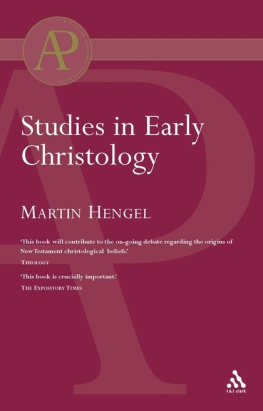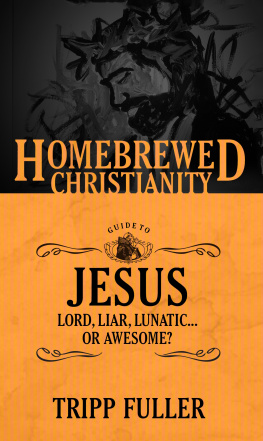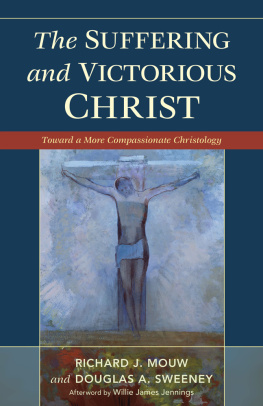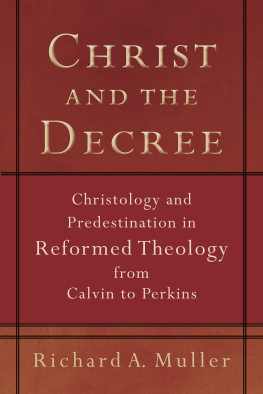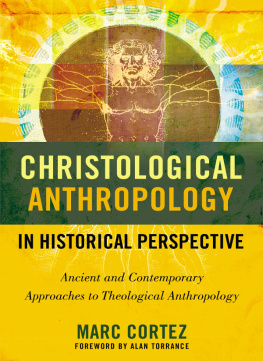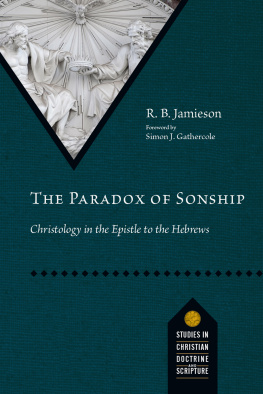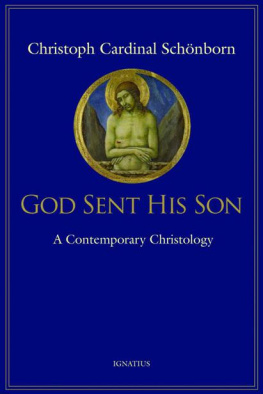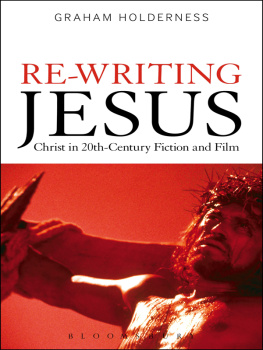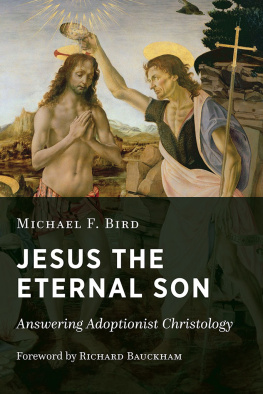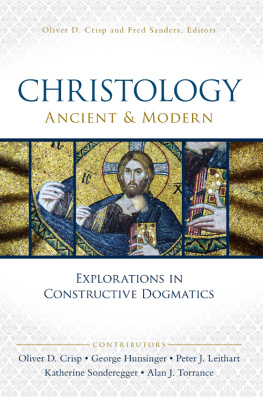Foreword
Foreword
Christology, the doctrine concerningGods revelation in Christ and the salvation wrought through Christ,constitutes the core of Christian theology and belongs to the centre of thechurchs proclamation. This significance is already evident in the writings ofthe first theologian Paul, who says of himself that on the way to Damascus hereceived the gospel through a revelation of Jesus Christ (Gal. 1:12) when Godchose to reveal his Son in me (Gal. 1:16). When the apostle Paul refers inhis letters to the gospel of GodThe Father has sent his Son into the world, and theSon is reconciling the present fallen world to the Father through his death onthe cross. In restoring the world to the Father, the Son assumes the Fathersglory, though, to be sure, this all happens (Phil. 2:11). We may be reasonably certain, then, that this first Christianauthor and theologian, whose uniquebecause apostolicauthority spans into thepresent, tells in his writing of an event between God and humanity, betweenheaven and earth; it is an event of incomparable drama with a programmatic comprehensivenesswhich supersedes anything else known from religious writers of the ancientworld. On the basis of the Christ-event Paul formulated at once both atheology and anthropology and thus was well on the way to the laterconfession of the triune God, a way which would reach its first climax in theJohannine corpus. Paul and John are both witnesses, each in his own way, to theconviction that Christology lies at the heart of theology.
This conviction is underscored by aconsideration of the creeds of the early church. The Apostles Creed and, inparticular, the so-called NicaenoConstantinopolitanum, as other such credalstatements of the early church, are dominated by the second article. At thesame time, the christological sections are intertwined with the first and thirdarticles of the creeds. They therefore seem little more than straightforwardnarratives of the history of revelation about Gods Son as contained in NewTestament passages, beginning with the pre-existence of the only begotten Sonand proceeding to tell of his incarnation, his death on the cross, and hisresurrection and exaltation until the parousia and final judgement. And yet, these apparently simple credal texts reflectsomething of later, more fully developed trinitarian understanding, operatrinitatis ad extra sunt indivisa (see p. 276 below). The triune GodFather, Son and Holy Spiritis revealed inthe world as the one God. Today, as many are questioning this centralChristian doctrine of Godallegedly because of the growing dialogue with othermonotheistic religionswe do well to devote our attention to the dynamicwithin New Testament Christology as it evolved out of its earliest beginningsinto a full-blown belief in the triune God. In my opinion, this is a matterwhich determines the extent to which, if at all, we can remain really Christiantheologians.
The essays collected in this volumemark an attempt to trace, from various vantage points, the development of theearliest christological beliefs into the second article of the churchs creed.Here we are confronted by an (as yet) unresolved theological problem whichalready surfaces in Pauls theology: how is Gods activity manifest throughthe Son and how can the Sons activity be identifiedwith that of the Father? In Pauls writings, our earliest Christian source, weare already invited to think of God in a way which is open to trinitarianterms.
But this development in theunderstanding of God and Christ did not originate with Paul. It is ultimatelyrooted in Jesus own self-understanding, his Persongeheimnis. Of course, whatJesus thought about himself is inaccessible to our historical and pyschologicalcuriosity. We can say, however, that Jesus own proclamation contained quite anew form of messianic claim which became visible and audible through hisactivity. Moreover, Jesus closest followers, the disciples, and thereafter theevangelists who were either directly or indirectly dependent on them,unanimously preserved the thrust of this claim despite the sometimes greattheological differences among them. For the disciples, there was no doubt thattheir master taught, not as the scribes, but rather proclaimed a newteaching in fullness of power (Mark 1:22, 27). They were also convinced thatin the parables the mystery of Gods reign, previously only known by Jesus,had now been disclosed to them (Mark 4:11, 3334). And further, they knew thatJesus healings and exorcisms not only fulfilled the eschatological promises ofthe Old Testament prophets, but also demonstrated that Gods heavenly andtranscendent rule had now been made tangible. Yes, in the prerogative of divinepower Jesus even dared to offer forgiveness of sins, that isas Ernst Fuchs hassaidto act in place of God. It is no wonder that in all four gospels, fromMark to John, those who observe and hear Jesus are repeatedly made to ask aquestion which serves as a point of departure for Christology: , Who isthis one? (Mark 4:41). This question, which has constantly been the subject ofdispute, continues as a vital issue into the present day.
The high Christology of the FourthGospel is already, at least partially, foreshadowed in a number of synopticpassages. These include the saying about authority in the relationship betweenthe Father and Son, By way of contrast, we should first attempt tocomprehend this Jesus and the disciples message about him in all theirstrangeness and unfamiliarity! The of the crucified Messiah is less understood today than inthe time of Paul.
Since the religious Enlightenment inthe second half of the eighteenth century up to our present time (most recentlyespecially in the English-speaking world), a bewildering number of books aboutJesus have been produced. They often only confirm the famous passage inGoethes Faust:
Wasihr den Geist der Zeiten heit,
das ist im Grund der Herren eigner Geist,
in dem die Zeiten sich bespiegeln.
All too frequently, such works areneither a real historical-critical picture of Jesus nor a theologicallythoughtful testimony of the truth of Gods revelation in him. Beyond historyand faith they are often little more than products of sensational andprofitable phantasy.

